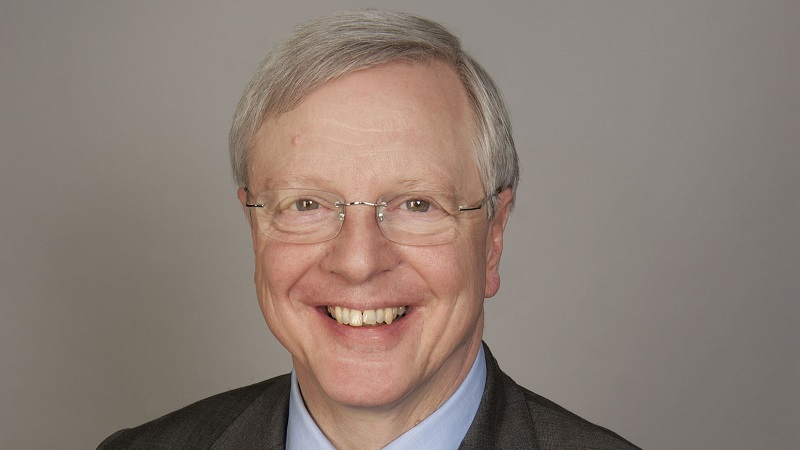Jonathan Ruffer has said his eponymous investment house holds approximately £2.5bn in the longest inflation-linked bonds available as it prepares for politics to drive an inflection point in markets.
In a presentation to the Morningstar Investment Conference, Ruffer (pictured) described current markets as a four-decade long “aberration” of benign conditions that had become supercharged in the last decade.
“It started with Alan Greenspan in the late 1990s when he for the first time started medicating the markets. But we have seen in triumphant full orchestra since quantitative easing and the lowering of interest rates,” said the Ruffer Investments chairman.
US share buybacks
“One of the buzzwords you might have come across in the financial press is the financialisation of stock prices,” he said, describing it as “fantastically more important” than the actions of the US Federal Reserve or Chinese policymakers.
“This is not about calling the correct market sectors, it’s got nothing to do with Brexit. Those are the things the magician gets you to look at when they do whatever it is that makes the rabbit come out of the hat.”
US share buybacks were an example of financialisation of stock prices Ruffer pointed to.
“What the Americans have learnt is you can make more money doing just that is that and reducing the number of shares than you do by going off and building a factory and doing more to earn more from that extra factory.”
Stock options plans for management had increased the popularity of buybacks since the eighties, he said.
‘I’m not a Corbynista’
“I’m not standing here as a Corbynista saying this is a disgrace, I’m standing here as an investment man saying ‘is this going to continue’,” he said.
“If you wonder why it is that politics is polarised, if you wonder why it is that the minimum wage in America looks as if it’s going to go up to $15, if you wonder why there is so much intergenerational grumpiness, it all comes back to the fact that the beneficiaries of this are a very small number of people.
“We as investors are putting our money and faith with that very small number of people.”
Central bankers would continue to support markets but politicians will put an end to austerity and consider policies like MMT (modern monetary theory) leading to inflation, something people currently believe is confined to museums, he said.
That will create an inflection point for markets.
Valuations just a response to environment
Ruffer admitted he did not know when the inflection point would come. “As long as I’m right the inflection point will come then if you’re looking after long-term money then that will come right in the time scale.”
However, he said the firm currently holds 13% of its money, about £2.5bn, in the four longest-dated inflation linked bonds. The longest having a maturity date of 50 years.
Within equities, he said the best place to be was cyclicals, noting they are cheaply valued and usually pay out a dividend. “They haven’t been caught in the infection of too much borrowing. They will not be a bad place on a total return basis.”
Japan was among his top regional picks. “We have quite a bit of money in Japan. They are an old-fashioned society. They haven’t really learnt the bad tricks the rest of the world has. That’s particularly true at a corporate level.”
The average US business with $10bn worth of sales has a market capitalisation 2.1 times that, Ruffer said. “When I was brought up the rule was that you bought the market when it was on a price to sales of a half. And you sold it when it got to the same as sales.”
Ruffer continued: “What that is telling you is not necessarily that the market is expensive, but it is responding to a set of circumstances which justify this sort of valuation.”










